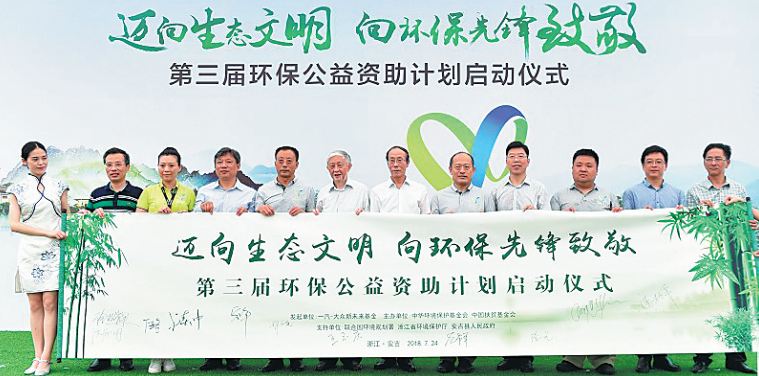FAW-Volkswagen funding program to support environmental protection projects

The third environmental public welfare funding project, hosted by the China Foundation for Poverty Alleviation and China Environmental Protection Foundation and funded by FAW-Volkswagen Automotive Co, kicked off on Tuesday in Anji county, Zhejiang province, with the goal of supporting and leading the development of environmental protection efforts.
Founded in May 2016, the project aims to promote nationwide participation in the construction of environmental protection efforts by providing related projects with funds from 20,000 yuan ($2,941) to 1 million yuan.
According to Zheng Wenkai, director of the China Foundation for Poverty Alleviation, FAW-VW has donated 24 million yuan for 40 NGO projects in the field of environmental protection and poverty alleviation through the New Future Fund and has achieved fruitful results.
"The donation shows FAW-VW's political awareness and corporate responsibility and plays a leading role in guiding the social forces to participate in poverty alleviation and environmental protection," Zheng said.
Fan Xijun, director and secretary of the Party committee of FAW-VW, said: "FAW-VW will not only become a pioneer in regional industrial upgrading, but also a regional model in green building and manufacturing." The company, he added, "will lead upstream and downstream partners to build a sustainable, green economy ecological chain with local governments."
Anji county, the birthplace of President Xi Jinping's "lucid waters and lush mountains are invaluable assets" theory, is an especially appropriate place to explore green development models, said Lu Chunzhong, deputy director general of the Zhejiang Environment Protection Bureau at the opening ceremony of the project.
He added that the project will provide a good opportunity for Zhejiang province to learn from the advanced experience of environmental protection and ecological construction elsewhere.
The county is also the home of Ren Weizhong, one of the beneficiaries of the project, who received funding worth 1 million yuan last year.
He uses renewable and recycled soils from the village to replace industrial materials to build houses in his hometown, reducing construction costs and waste, and improving energy conservation and emission reduction.
Ren said the public welfare funding provides a guarantee for his project development, enabling him to launch more training with villagers and university students.
He has been invited by Tsinghua University, Tongji University and 10 other universities to give lectures about his buildings to encourage students to put such ecological construction techniques into practice.

